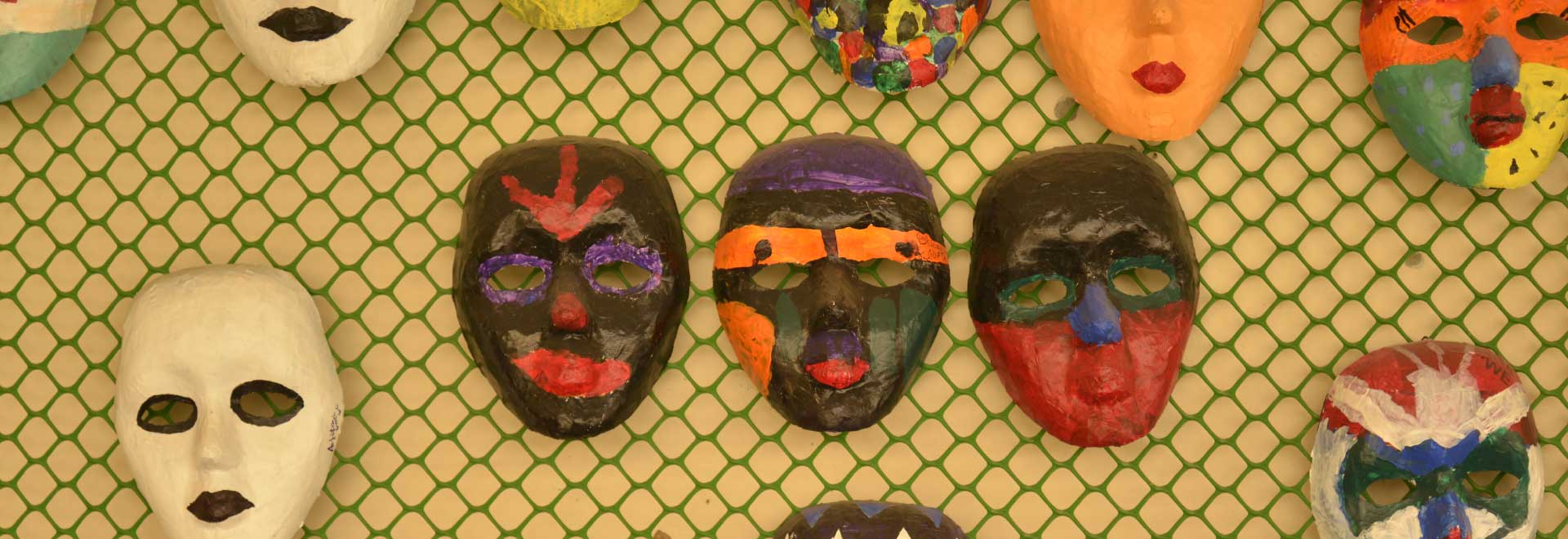Get In Touch
To talk to a counselor or schedule a personalized school tour, please complete the form below. We look forward to hearing from you.

Our Community
- Home
- Our Community
- Blog
Our Community
Pathways School Noida
Blog
Back-
Nurturing Creativity and Personal Development: Art Education's Essential Contribution to the IB CurriculumFebruary 25
The IB curriculum places a significant emphasis on educating the whole person and fostering creativity and personal development. Art education plays an essential role in achieving these goals and should be a core part of any IB program.
Inquiry-Based Learning Through Art
The IB promotes inquiry-based learning, where students are active participants in the discovery and construction of knowledge. Art education inherently adopts an inquiry-based approach, guiding students through the exploration of materials, techniques, concepts, and their creative potential through hands-on art making.
Creating art involves experimentation, risk-taking, problem-solving, and reflective thinking. Students learn to analyze artworks, question assumptions, evaluate perspectives, and synthesize information to construct new understandings. This aligns perfectly with the IB’s approach to developing inquiring minds.
Art Promotes International-Mindedness
A central idea within the IB is developing intercultural understanding and respect. Art education helps accomplish this by exposing students to diverse artistic traditions from around the world. Studying artworks and cultural practices from different places and time periods expands students’ global perspectives.
Making art also builds empathy, compassion, and appreciation for different ways of seeing and being in the world. This contributes to the IB mission of creating caring young people who embrace diversity.Supporting Wellbeing and Self-Identity
At the heart of the IB curriculum is nurturing the whole child, not just academics. Arts education contributes to healthy social-emotional development and self-discovery. Art creation can serve as a therapeutic outlet, reducing stress and promoting mindfulness.
Self-expression through art supports students in exploring identity, working through emotions, finding their voice, and building self-confidence Cooperation and collective problem-solving are essential in group art projects. Art studies foster self-awareness by helping students understand their own values, perspectives, and cultural frames of reference. This focus on self-identity and well-being aligns with the IB’s holistic view of education.
Building Community and Cultural Awareness
The IB seeks to nurture caring young people invested in their communities. Arts education helps accomplish this by promoting cultural awareness and providing opportunities to collaborate. Studying diverse artistic traditions builds intercultural respect and understanding.
Group art projects require cooperation and collective problem-solving. Student art exhibitions let young artists share their voices while building community. Exploring public art develops awareness of how creative work impacts society. Students may be inspired to use art to address issues they care about. This fosters civic engagement and community building.
Integrating The Art Across Disciplines
To facilitate connections, the IB encourages interdisciplinary learning. Integrating arts across the curriculum can enhance this enormously. Studying artistic movements related to historical periods brings eras to life.
Creating artworks inspired by literature and science helps cement conceptual understanding. Design thinking facilitates innovation and creative problem-solving. Music and dance tie into math, physics, and patterns. Drama builds empathy, communication, and cultural awareness. The arts contextualize learning across subjects, creating relevance and engagement.
Developing an Artistic Mindset
Education should nurture creative habits of mind that extend beyond school. Making art promotes an artistic mindset that benefits all areas of life. Imagination, flexibility, metaphoric thinking, observing deeply, finding aesthetic meaning, persevering through uncertainty, and expressing personal vision – these transferable skills foster innovation and problem-solving.
Lifelong participation in the arts enhances the quality of life and health. An artistic mindset also cultivates the ability to find beauty, meaning, and human connectedness in the world. These values are at the heart of the IB’s mission.
Valuing Multiple Perspectives through Art
A key emphasis in IB education is developing thinkers who integrate differing perspectives. Studying varied artistic styles and movements demonstrates how culture and history impact artistic expression, helping students see issues from diverse points of view.
Respectfully evaluating and critiquing artworks necessitates considering varied aesthetics and worldviews. Students also learn that artwork can be interpreted in many ways based on the viewer’s background. Making art from different lenses expands flexibility in thinking and valuing diversity.
Promoting reflection and Metacognition
Self-awareness, metacognition, and reflective thinking are central to the IB approach. Reflecting on the artistic process helps students become more mindful of their own thinking, learning, and progress. Crafting artist statements demands a thoughtful meta-analysis of creative goals and problem-solving.
Group critiques teach listening, verbal expression, evaluating perspectives, and giving/receiving feedback. Portfolio reviews promote analyzing own work, identifying strengths to build on, and setting improvement goals. The reflective thinking intrinsic to arts education aligns with IB’s emphasis on metacognition.
Conclusion
This discussion illustrates how art education powerfully aligns with and contributes to the key goals and values of the International Baccalaureate curriculum. Studying diverse artistic traditions expands cultural awareness and global-mindedness. Making art nurtures creativity, self-discovery, empathy, and a lifelong artistic mindset. Integrating art across disciplines enhances interdisciplinary connections and engagement.
Group art projects build community, cooperation, and collective problem-solving. Reflecting on the artistic process develops metacognition and self-awareness. Art education helps create inquiring, caring, creative young people ready to thrive in our diverse, complex world. An IB education is incomplete without the essential contribution of rich, immersive arts experiences that allow every child to develop their unique creative potential.

Drop us your details for a quick response!








Copyright 2026 © Pathways School Noida. All rights reserved.
Managed By: Dezine N Digital







Get in Touch